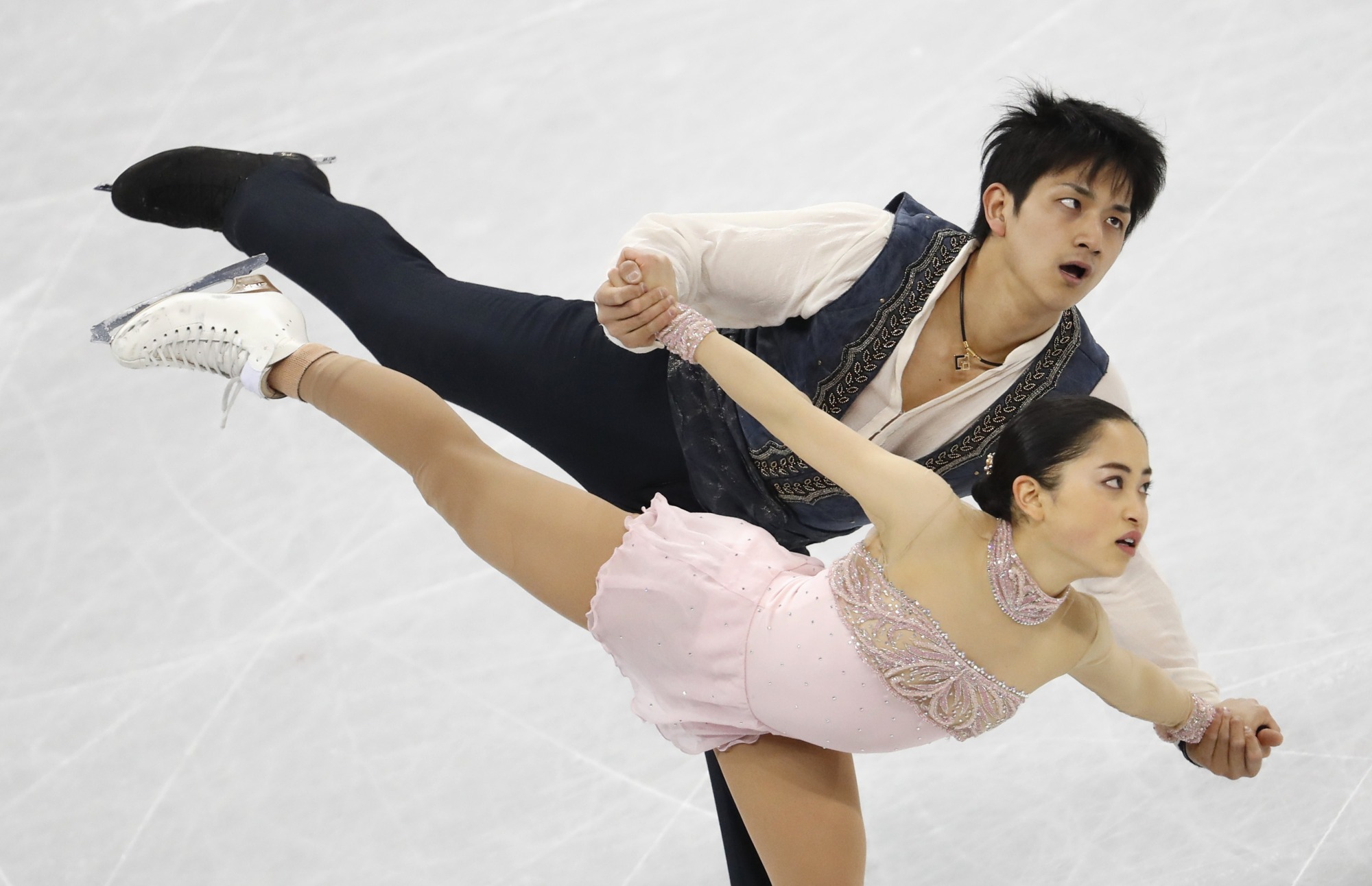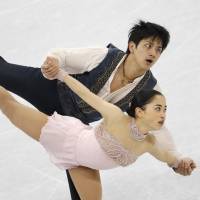The more things change, the more they stay the same.
Or so it seems.
Japan finished a distant fifth, again, in the team skating event on Monday, behind Canada (73 points), the Olympic Athletes from Russia (66), the United States (66) and Italy (56).
The Hinomaru was able to muster just 50 points through short programs and free skates in the four disciplines.
Something has to change or it will be the same story four years from now in Beijing.
Granted, there were some mitigating circumstances. Yuzuru Hanyu, who won the men's short program in the inaugural team event in Sochi, was unable to compete here as he bought himself a few more days to recover from his ankle injury before the singles competition starts on Friday.
But that in and of itself still does not explain Japan's poor showing.
Satoko Miyahara was fourth out of the 10 skaters in the women's short program, while Kaori Sakamoto was fifth of the five in the free skate.
Both could have done better, but the real issue for Japan lies in the lack of strength in both pairs and ice dance.
This is not a new problem, but one that has been going on for years.
It is time for the Japan Skating Federation to take some serious action and find some prospects that can help Japan compete for a medal in the team event at the Olympics.
The pairs team of Miu Suzaki and Ryuichi Kihara came in eighth of the 10 teams in the short program and fifth and last in the free skate for a total of nine points.
The ice dance duo of Kana Muramoto and Chris Reed were a respectable fifth out of 10 in the short dance, but placed fifth and last in the free skate for 12 points total.
In a nation of nearly 130 million people, you can't tell me that the JSF is unable find and nurture three decent teams in both pairs and ice dance.
I have heard the excuses.
"Size is a problem because you usually need a taller man for a shorter female partner. In Japan it's difficult."
But that doesn't wash. It's time for the JSF to make it a priority to improve pairs and ice dance.
Japan earned 50 points while coming in fifth in Sochi, based on Hanyu's win in the short program, Tatsuki Machida's third place in the free skate, Mao Asada's third place in the women's short program and Akiko Suzuki's fourth in the free skate.
Japan's results in pairs in Sochi were identical to Pyeongchang (8th/5th), while ice dance (8th/5th in Sochi) was slightly improved this time.
The reality is that even if Japan had won the men's and women's short programs and free skates here (good for 40 points), it still would have finished fourth with 61 points.
Winning all four of the men's and women's programs is asking a tall order, so there has to be more balance for Japan across the board to have a legitimate shot at medaling going forward.
Canada's team gold included 39 points from pairs and ice dance, while OAR had 34 to get the silver and the U.S. 32 for the bronze.
Japan's total of 21 points in pairs and ice dance was woeful in comparison.
It's time for the JSF to take responsibility and do something about this, otherwise the Japanese public is going to lose interest in the team event in the future if they know going in that their squad has no chance to make the podium.
That would be a real shame.
While the team event provides a good opportunity for the skaters to work through some of their programs before the individual disciplines, and the fans to see them in action, the bottom line is that it is a medal event.
There is a reason they keep score.




